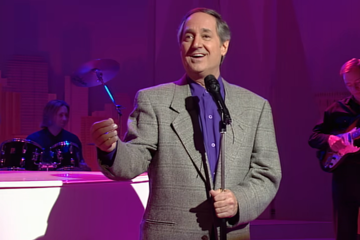 Max Richter
Max RichterIt’s a sad fact that in the past few decades Vivaldi’s Four Seasons has lost a lot of its appeal after close to 300 years dominating the popular consciousness with regards to classical music. It’s been endlessly played and recorded and its cultural significance has been diluted through irresponsible exploitation and laziness. It’s a touchstone for those who enjoy classical music and equally those who don’t. Everyone knows at least a few passages, and that familiarity has bred an odious ambivalence too many people now share.
In The Four Seasons Recomposed, Max Richter has succeeded in at least rekindling an interest in Vivaldi’s masterwork, and while his minimalist style may not on paper seem the most natural fit, his keen sense of drama and romance definitely works in its favour. Around 75 per cent of Vivaldi’s original composition has been transmogrified, adjusted or even replaced, and while the transitions are not seamless, they are subtle and fascinating, and the results are astounding.
Richter’s debut Opera House performance saw him bring with him the Wordless Music Orchestra from New York, a young, stylish group that featured leather pants, undercuts and the obligatory beard or two. Leading the ensemble was key violinist and director Yuki Numata Resnick, whose vitality and flair made up for her shortfall in dextrous technical perfection.
Architecturally, Richter’s Four Seasons Recomposed remains true to the source material, with each season (Spring through to Winter) containing three movements and maintaining tonal fidelity. Texturally it’s a different story. Spring started with a looped birdsong passage of lithe violin trills, and the layering was performed wonderfully. It was a great representation of the rest of the performance, with delicate acoustic tones overlapping with electronic ones that resulted in beautiful clouds of light and dark, of boiling allegro cello noise and graceful moments of melancholia and weariness. Summer’s third movement was a brilliant combination of Vivaldi’s furious vivaciousness and Richter’s modernist propulsion, and it blended and built to a stunning conclusion. They played the piece a second time to rapturous applause.
Don't miss a beat with our FREE daily newsletter
After a sweet and scruffy rendition (with the whole group singing!) of INXS’ Never Tear Us Apart in honour of their host, the Orchestra departed amid cheers and boundless goodwill.
Richter returned after interval with a string quintet to perform his own earlier work, Infra. It’s a brooding composition that sat in stark opposition to Vivaldi’s voluptuous music, and was a curious accompaniment. As beautiful and well-executed as it was, perhaps the night would have been better without it.















